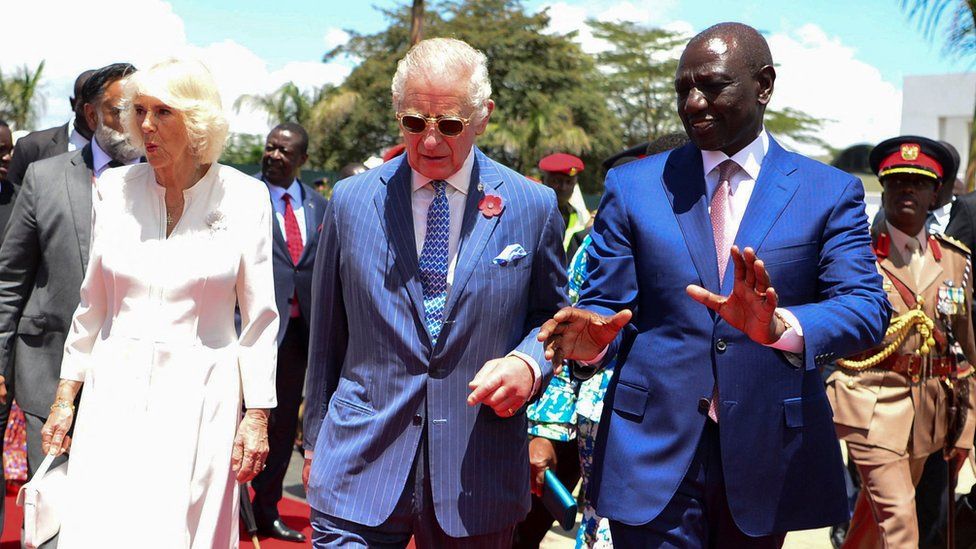42 minutes ago
About sharing
King Charles has spoken of the “abhorrent and unjustifiable acts of violence committed against Kenyans” during their independence struggle.
On his state visit to Kenya, the King addressed the “wrongdoings” of Britain’s colonial era.
He told a state banquet in Nairobi of his “greatest sorrow and regret” and that there was “no excuse”.
But the King did not deliver a formal apology – which would have to be decided by government ministers.
Ahead of the King’s state visit to Kenya, the first to a Commonwealth country since the start of his reign, there had been speculation about a symbolic apology for the legacy of colonialism.
If there was not a specific apology, his speech was an unambiguous and strongly-worded recognition of the wrongs committed.
As Kenya marks its 60th anniversary of independence, the King told his audience: “It matters greatly to me that I should deepen my own understanding of these wrongs, and that I meet some of those whose lives and communities were so grievously affected.”
In particular in Kenya there are memories of the suppression of Mau Mau uprising, in which thousands were killed and tortured in the 1950s before independence.
A decade ago the UK government voiced its “regrets that these abuses took place” and announced payments of almost £20m to more than 5,000 people, in what it called a “process of reconciliation”.
Monarchs have to speak on the advice of ministers and UK Prime Minister Rishi Sunak has already rejected calls for an apology on the separate issue of slavery.
But the King delivered a strong acknowledgement of the “most painful times of our long and complex relationship”.
He told his audience that the friendship between Britain and Kenya could be strengthened by “addressing our history with honesty and openness”.
Part of the King’s speech was delivered in Swahili, as he toasted the connections between the countries.
On this first day of the state visit, Kenya’s President William Ruto hosted a meeting with King Charles, before visiting a museum dedicated to Kenya’s history and its battle of independence.
The Royal Family, particularly on visits to Commonwealth countries, have increasingly faced questions about the legacies of colonialism and slavery, with calls for apologies and reparations.
Earlier this year, Buckingham Palace said it was supporting independent historical research into royal links to the slave trade.
But newly-published research suggests this can be a complex picture, showing how the royals were divided in the run-up to the abolition of the slave trade in 1807.
The future William IV was a strong pro-slavery advocate, while his cousin the Duke of Gloucester was a leading light of the campaign for abolition.
